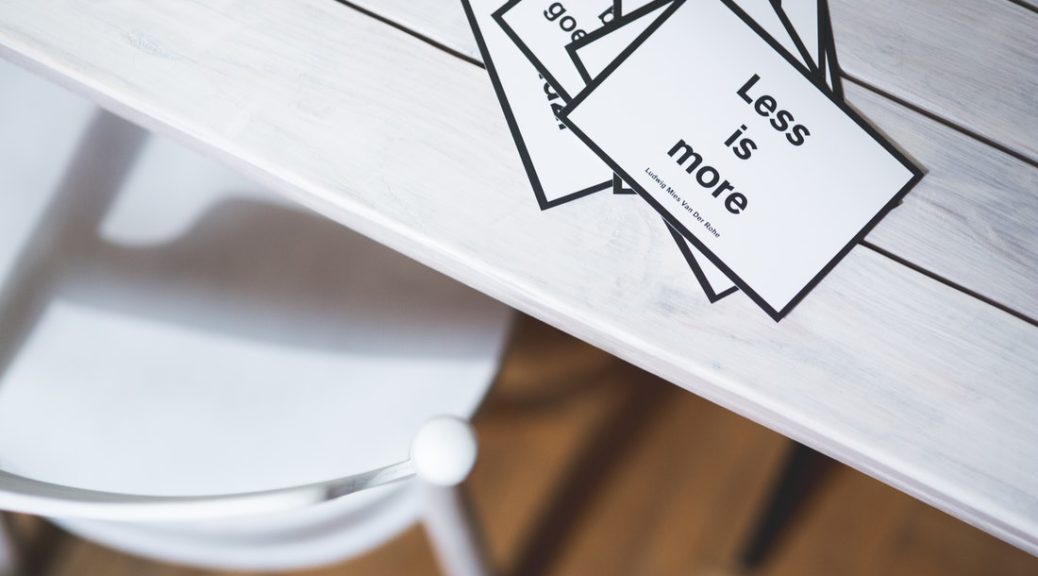
Less Is More, More or Less
“Less is more” is a cliché. It’s mostly delivered jokingly when something is small. The implication is that less is bad.
In the old days, no one said less is more…because nobody had more. There was no expectation of more to fall short of. No one expected a large but received a small.
In the todays, more is the default. Everything is more – portions, houses, wardrobes. Less must be actively chosen. Without daily pruning, more takes over.
More is even sold as the way to get less. Consider body fat. We’re told the best way to get less is more gym memberships, more equipment, more diet products…
More has become so big it’s unmanageable. There are books and videos and seminars on how to get away from it. Tim Ferriss, David Allen, and others talk about how to simplify life so you can actually complete a task during the day.
Marie Kondo wrote a popular book called The Life-Changing Magic of Tidying Up. A one-sentence summary is that people have too much junk and will be happier if they throw most of it out.
I’ve even seen advocates of less in an unlikely place – venture capital. Surely more funds wouldn’t hurt a startup company.
In his book Secrets of Sandhill Road, venture capitalist Scott Kupor cautions business owners on accepting too much money. Paradoxically, more cash can hurt the company in the long run. Business owners with too much cash don’t have to prioritize spending. Since they can buy more, they spend more, and waste more.
Speaking of paradoxes, there is one called the ‘Paradox of Choice.’ Decision making becomes harder as options increase, to the point where people can’t make a decision at all.
A famous experiment demonstrates the paradox. Researchers set up a stand to sell jam. First, the researchers offered 6 flavors. Next, they offered 24. They found consumers were 10x more likely to buy jam when there were 6 flavors as opposed to 24. Additional flavors paralyzed people’s decision-making process.
If fewer flavors of jam is helpful, so is eating less of it. In fact, eating less of anything is helpful. Preliminary research is showing that restricting calories extends lifespans.
Furthermore, fasting—eating nothing—shows better long-term results than eating less. People report feeling less hungry when they eat nothing than when they eat a little bit. Eating zero is easier than eating just one.
What about money? More income has to be better. Well…people feel better until about $75,000 per year. After that, money stops affecting quality of life.
But we all know we should avoid eating too much and that money isn’t the source of happiness. Having fulfilling personal relationships is what matters. We should just accumulate as many contacts as we can.
Or should we? Researcher Robin Dunbar says the average person only has enough cognitive capacity to maintain around 150 meaningful contacts, 50 of whom we’d call friends, 15 of whom are good friends.
Some people dispute this finding, but it makes sense on a conceptual level. We have only so much time and attention to spend with other people.
So…maybe less actually is more? It can be said sans sarcasm? Satisfaction can be found right now, where we are, with what we have?
It would seem so.
“You can never get enough of what you don’t need.”
Eric Hoffer
“‘Enough’ is a feast.”
Buddhist proverb